This show didn’t just entertain – it introduces audiences to Black history, or reminds them, in a way that lingers…
By Victoria Hincapie Gomez
Photos by Kam Sylvestre
Mona’s Magic Hour is a one-hour, family-friendly musical revue iteration of The Tweetations Revue, a 22-minute short film and musical fantasy, that brings together people of all ages to celebrate the joy and spirit of Black music, style and performance over the past six decades. And they get to enjoy the show alongside birds and nature.
The revue, which notably played earlier this summer in Toronto, is hosted by Ms. Dionne the Pigeon, played by multidisciplinary artist Zaahira Joseph. As she welcomes the audience to the show and introduces The Tweetations, a fabulous flock of talented songbirds from across ‘The Great Tree’ make their way to the outdoor stage. The show is a love letter to ‘Mona’ (also played by Zaahira Joseph), or Mother Nature.
Throughout the hour, which takes place during “magic hour” (sunset), we meet a variety of performers and musical styles, all brought to life through uplifting numbers, comedy sketches and dance sequences. It’s interactive, whimsical and cheeky, and full of heart and nostalgia. The show features classic songs from the Gladys Knight & The Pips and The O’Jays catalogues.
Fraser Collins, writer and director of Mona’s Magic Hour, says the revue is contributing to a larger conversation about how art can spark change, especially in how we relate to the environment.
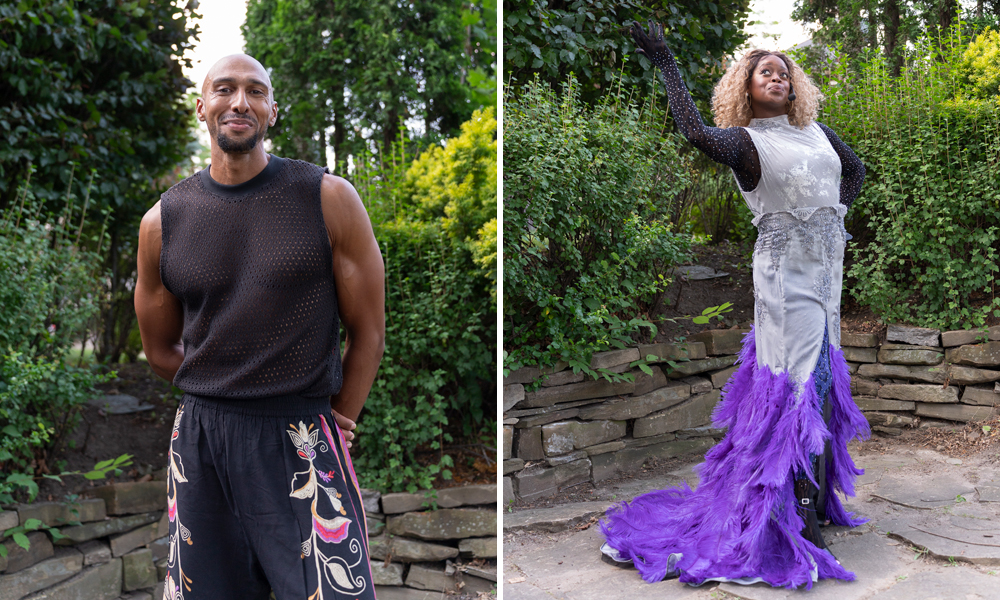
“I’ve read that the bird population is declining. Our ecosystems are in crisis. And at the same time, Black and other marginalized communities are vastly under-represented in fields like ornithology and natural science, so part of the intention here is to inspire and to show young people, especially from racialized backgrounds, that the natural world belongs to them too,” he says.
Collins often felt like an outcast growing up in Queensville and Mount Albert, Ontario, navigating life as an adopted, Black, bi-racial kid in a mostly white family and community. Music and film gave him an escape from this complex reality, propelling him to study TV, media, broadcasting and cinematography in his post-secondary education. After graduating, he began working in Toronto’s film industry as a camera assistant on feature films, TV shows, commercials, concerts and music videos.
While doing these projects, Collins met other like-minded individuals with whom he shared live experiences.
“I didn’t fully see myself as an artist until I met other Black and LGBTQ+ creatives, people who lived proudly in both their artistry and their identity. That community gave me the courage to do the same, and to centre my work on the lives, communities and stories that reflect who I am. My journey as a multidisciplinary artist has been shaped by education, work, a whole lot of dreaming, and relationships,” he explains.
The revue is composed of an all-Black cast, which initially is what drew Zaahira Joseph, the actress behind ‘Ms. Dionne’ and ‘Mona,’ the most to it.
“I think there’s not enough art and theatre,” Joseph says. “And I don’t want to say that it’s just for us because it’s not just for us, but there’s not enough of it. The opportunity for us to be in an all-Black cast, to show our culture or our Black magic, was truly beautiful. My main role, Miss Dion, has a lot of sass and playfulness to her and a bit of mystery, so that’s kind of like my personality. The best way that I could describe her is as a mama who likes to put on a really good party, all while being in disguise to be amongst the people and witness life up close.”
For the majority of her early life, Joseph was a competitive gymnast, but when she was about 17, an injury caused her to stop gymnastics. To fill that void, she started delving into dancing and cheerleading, which led her to acting and singing.
Joseph says plays like this are important. “These are the ways that we are able to express ourselves and say something and represent our communities and our cultures, in whatever artistic fashion,” she says. “I think any time we hear the word like politics or political anything, we can automatically get depressed, but we can be political in a very light and fun way, showing diversity, showing community, showing culture, showing all of these different colours.”
Joseph wasn’t the only one holding multiple roles in the revue; Chris Otchere played ‘Pecker Bigwing,’ ‘Love bug’ and one of the ‘Treetops.’
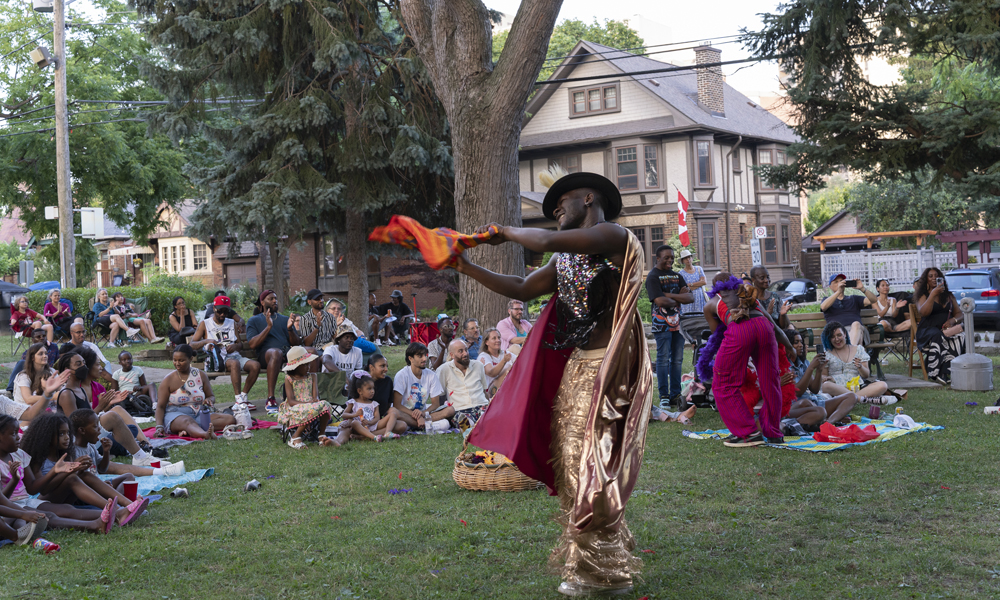
“‘Pecker Bigwing’ is probably the coolest bird in the nest,” Otchere explains. “His fashion is impeccable – no pun intended – and his confidence is unmatched. A huge inspiration for the pecker for myself is Sylvester. The love bugs are these fun-loving creatures that just want to infect the world with love and affection. The Treetops are inspired by the O’Jays, who were an R&B group in the ’60s and ’70s. They created legendary hits such as ‘Sing A Happy Song.’”
Otchere grew up in a highly religious Ghanaian household, surrounded by music and dance, and gospel music and going to church were a big part of his life. As he came to terms with his identity as a Black queer man, dancing felt like an escape from the world, leading him to pursue musical theatre at the Etobicoke School of the Arts.
“I was taught the fundamentals of becoming a triple threat from amazing teachers and faculty,” Otchere says. “Our Black History Month shows at that school were so pivotal in me continuing to pursue the arts in post-secondary education. The Black stories of resistance and racism in the world told by these young Black students were so impactful and important to the rest of the school community, which was predominantly white. To this day I love to be a part of the Black theatre community and be able to tell Black stories.”
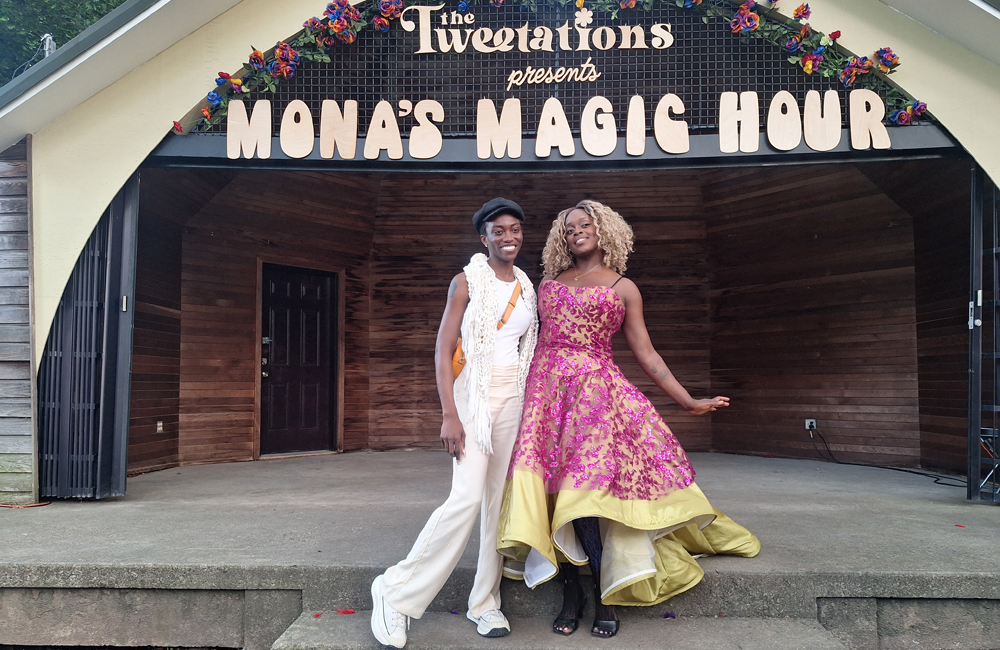
A major part of theatre revolves around creating custom designs to bring characters to life, and that’s what Diséiye Thompson did for Otchere, Joseph and the rest of the cast. Thompson is an independent fashion designer with an eponymous brand (‘Diséiye’), whose upcoming projects include facilitating a four-week sewing program for ballroom youth along with fellow fashion designer and ‘Mona’s Magic Hour’ set decorator, Charlotte Carbone. The program is funded by the Toronto Arts Council through Art Reach.
While envisioning the characters’ costumes with Collins, they looked to nature for inspiration, referencing birds in their movements and colour scheme and even courtship rituals. Thompson also worked with Darynel Beckford, Jelani Waldron and Akosua Hazel, previous students of the costume design program at the CEE Centre for Young Black Professionals, a charity dedicated to addressing economic and social barriers affecting Black youth ages 18 to 29 in and around the GTA. They assisted Thompson with wardrobe and were able to gain some hands-on experience.
Thompson says watching the revue as a spectator last July was truly magical, especially “seeing all the kids interact with the performers, circling around Mona after the show to get photos, getting to dance and laugh along with the performers. Bringing joy to families is truly what the show is about, and I am grateful to be a part of it. Black Joy is resistance; it’s important to create spaces for Black audiences, especially young people, to see themselves reflected in art, to envision a liberated future full of possibilities.”
Collins says this show doesn’t just entertain; it introduces audiences to Black history, or reminds them, in a way that lingers.
“You’re singing along, you’re laughing, and suddenly you’re thinking about art, legacy and where we’ve come from, even if you don’t realize it right away,” he says. “When a show like this comes to life, it tells young people that they can make something meaningful and uplifting, something that reflects their full self. There’s something radical about centring joy and connection in a time when there seems to be less and less of it. Any chance I get to document, showcase, honour or remix Black and LGBTQ+ joy, count me in! It’s absolutely worth protecting.”
Collins says he is working to release the award-winning short film The Tweetations Revue before the end of summer, with the hope of developing a larger live theatre production called The Tweetations Revue Live sometime next year.
VICTORIA HINCAPIE GOMEZ is a Colombian transgender journalist based in Toronto. She writes and reports stories about crime, culture and politics as well as profiles of people within under-represented communities. Victoria’s writing has appeared in CBC Arts and Humber Polytechnic’s news outlets, Skedline News and Humber Etcetera.

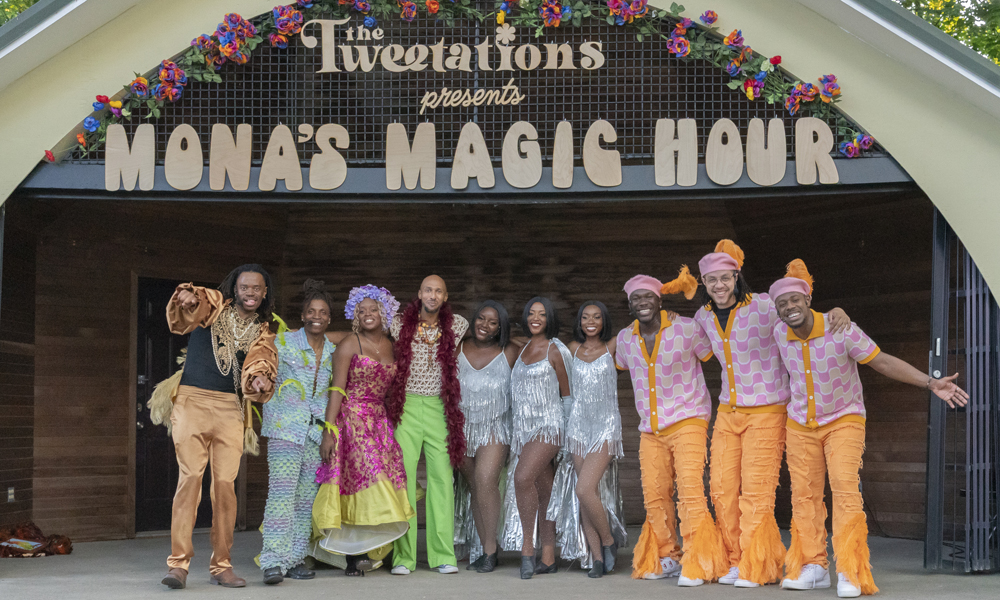

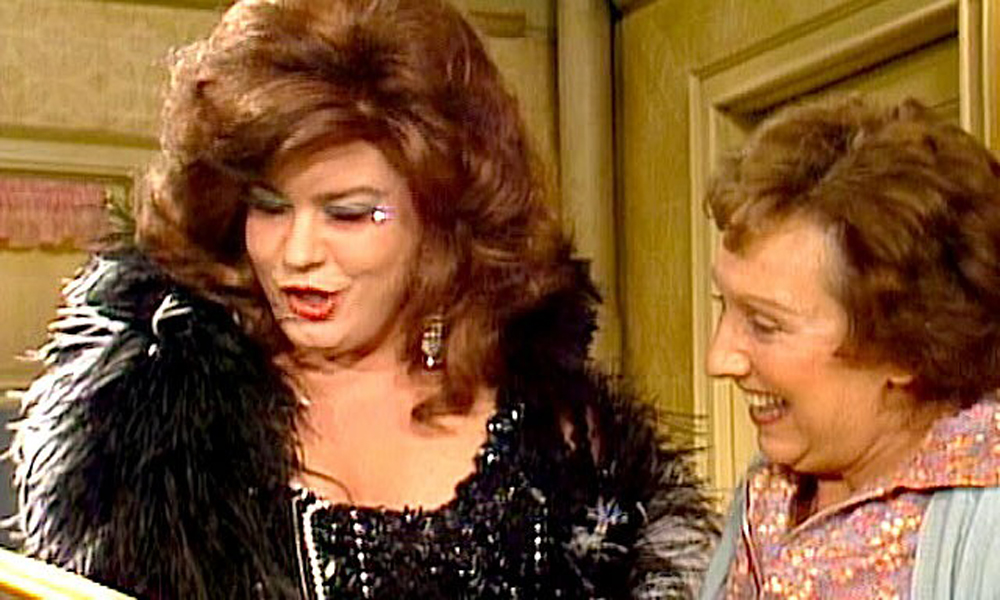

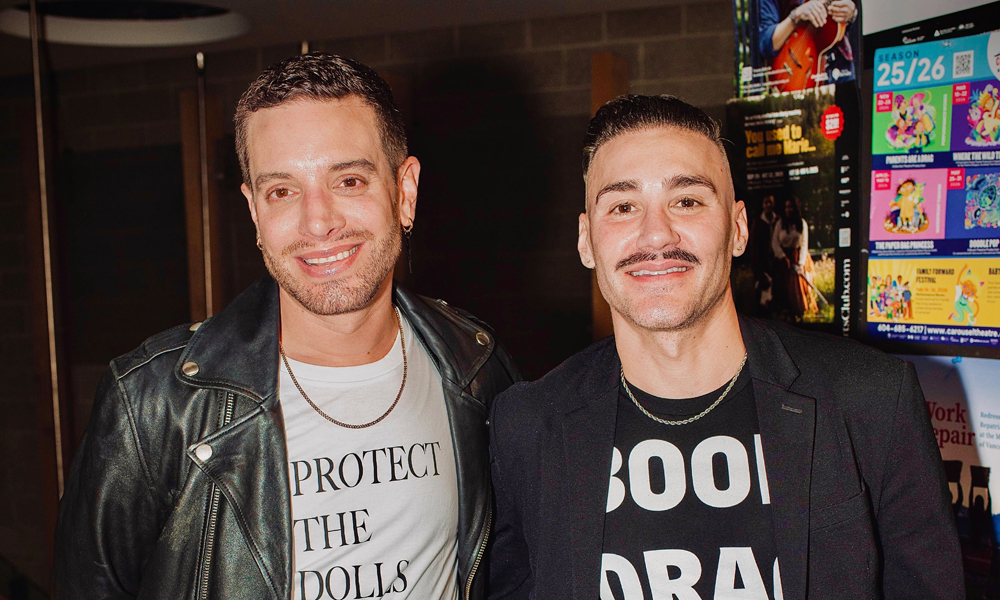
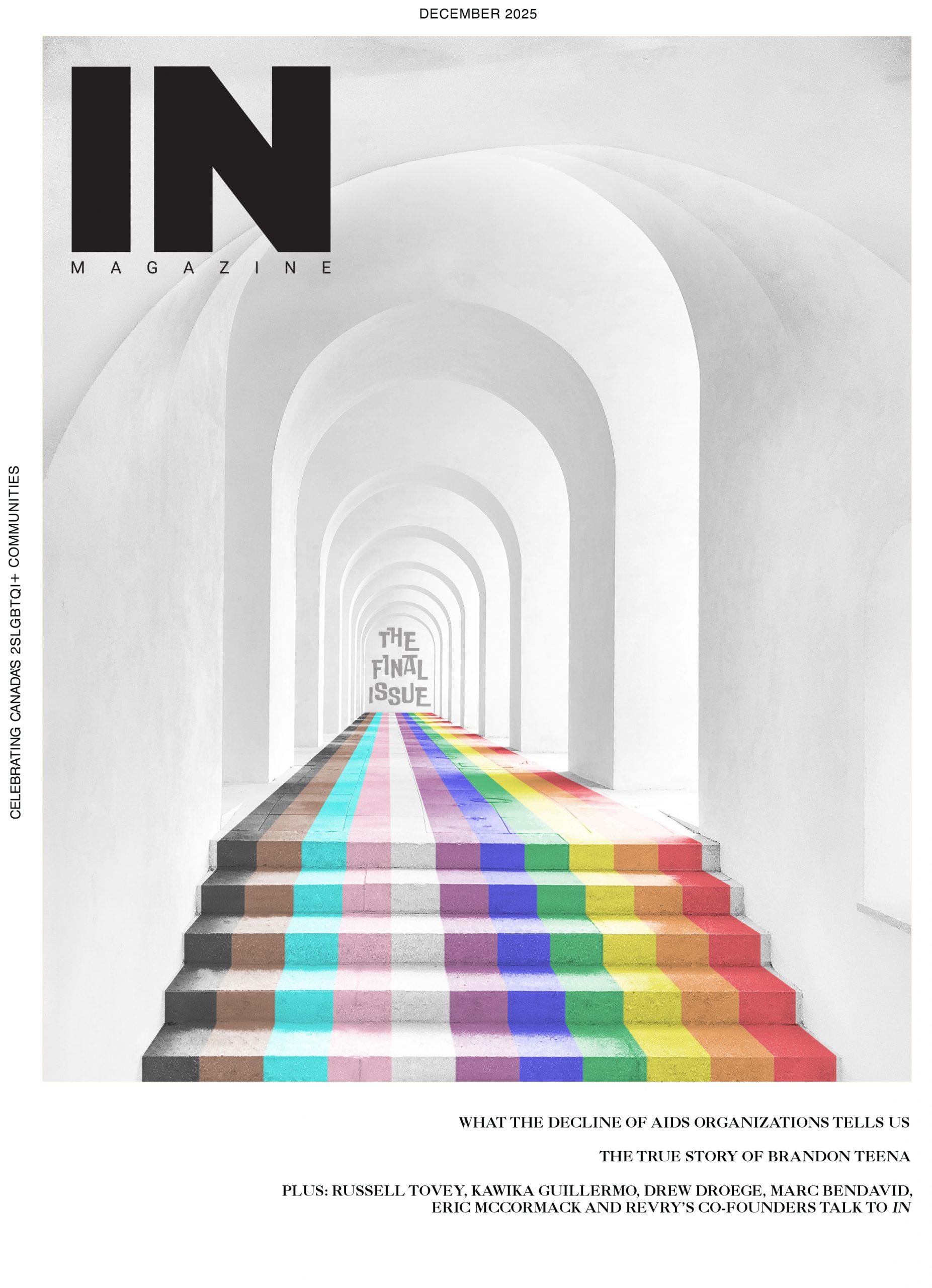
POST A COMMENT